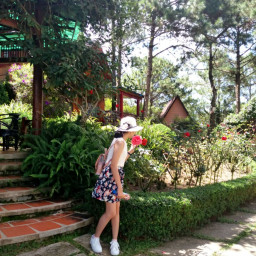Read the passage and then decide whether the sentences are True (T) or False (F). Viet Nam's New Year is known as Tet. It begins between January twenty-first and February nineteenth. The exact date changes from year to year. Tet lasts ten days. The first three days are the most important. Vietnamese people believe that what people do during those days will influence the whole year. As a result, they make every effort to avoid arguments and smile as much as possible. Vietnamese people believe that the first person through the door on New Year's Day can bring either good or bad luck. Children receive lucky money as they do in other countries. 1. Tet occurs in late January or early February. _______ 2. There are two weeks for Lunar New Year. _______ 3. People should not argue with each other at Tet. _______ 4. The first visitor on New Year's Day brings good or bad luck. _______ 5. Only children in Viet Nam get lucky money. _______
Read the passage and then decide whether the sentences are True (T) or False (F).
Viet Nam's New Year is known as Tet. It begins between January twenty-first and February nineteenth. The exact date changes from year to year. Tet lasts ten days. The first three days are the most important. Vietnamese people believe that what people do during those days will influence the whole year. As a result, they make every effort to avoid arguments and smile as much as possible. Vietnamese people believe that the first person through the door on New Year's Day can bring either good or bad luck. Children receive lucky money as they do in other countries.
_T___1. Tet occurs in late January or early February.
_T___ 2. There are two weeks for Lunar New Year.
_T__ 3. People should not argue with each other at Tet.
_T___4. The first visitor on New Year's Day brings good or bad luck.
_F___5. Only children in Viet Nam get lucky money.











